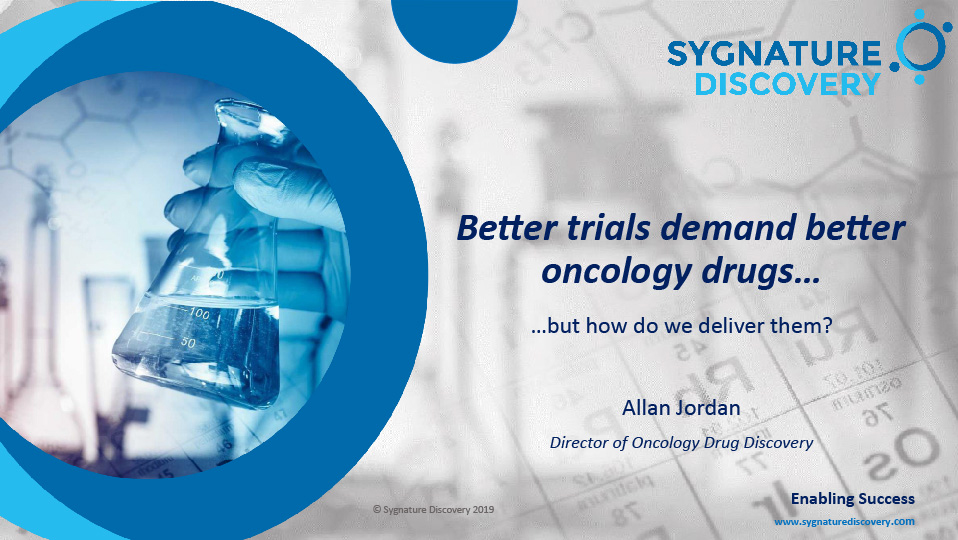Better trials demand better oncology drugs…
…but how do we deliver them?
The ethos of cancer drug discovery is changing and in the recent Phase 1 clinical trial meeting in Manchester, we discussed the demands that these changes place on the drugs we discover and the way we evaluate these drugs in the clinic.
In the first talk, we look at the unmet needs in cancer and contrast the perspective of the drug hunter and the patient to identify new ways of thinking about cancer drug discovery. This clinical perspective highlights several areas that demand our attention. Particularly, we highlight the desire for better tolerated drugs to deliver more durable combination therapies and agents with improved CNS penetrance, to combat the CNS metastatic disease observed in over a third of patients. We also stress the need for improved target discovery, to deliver alternate points of therapeutic intervention. This leads us to examine the age of molecular profiling in clinical trials and we note the significant advances in this area. However, appropriate clinical trials or approved drugs are only found for 10-20% of patients. We suggest that the genetic profiles of the remaining 80-90% of “nil actionable” patients may offer a significant resource to reveal new ways of thinking about cancer treatment. Finally, we invite the clinical community to be more involved with the drug discovery community, to ensure the drugs we deliver truly fit the needs of the current and future generations of cancer patients.
In the second talk, we’re looking at the changing face of cancer medicines in Phase 1 trials and the role of the research nurse community in this undertaking. As we better understand the complexities of advanced cancer, drug resistance and cancer heterogeneity, it has become clear that we need to re-think not just the types of drugs we discover, but the way our trials are conducted. We are more extensively profiling cancer as it is diagnosed and as it progresses and in doing so, we are grouping patients into smaller and smaller subsets. We therefore design drugs for these highly specific subsets but, in a trial setting, if only 2% of patients carry the “correct” genetic alteration, then we exclude 98% of patients desperate for an effective drug. Peter Johnson, the former CRUK Chief Clinician once noted “we need to stop finding patients for trials, and find trials for patients”. The talk will look at how we are doing that and how we are looking to change our clinical trial practice to meet these evolving needs. It also looks at the challenges raised by this new paradigm and how the NHS, and the research nurses within it, are pivotal in overcoming these, so that we can more effectively deliver new medicines to cancer patients.

